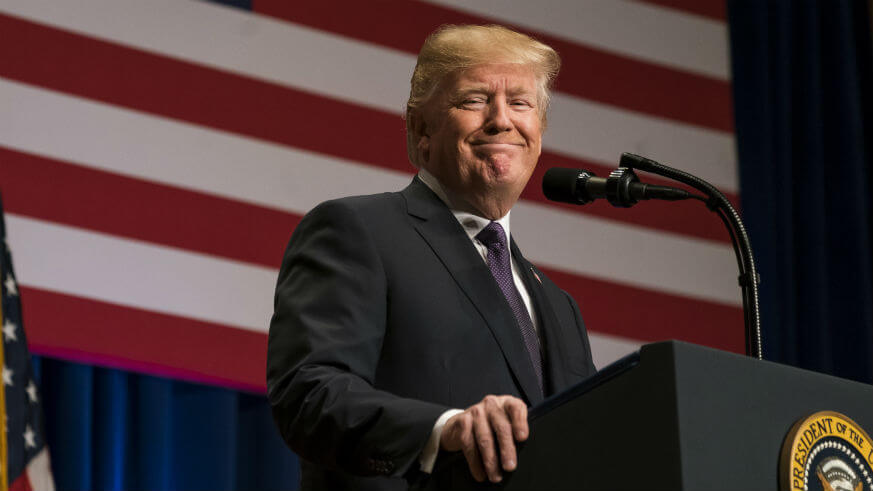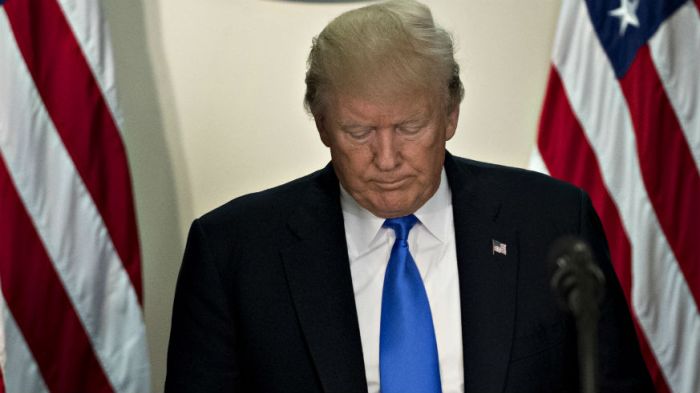Trump’s official national-security strategy, announced Monday afternoon, has dropped climate change from the list of threats to national security while re-adding jihadist terror.
Those are two more sharp breaks from Obama-administration policy. The former president emphasized that the planet’s rising temperatures were a threat to national security, while removing references to jihadists and Islamic extremism from his security policy. Trump has worked to unwind national global-warming regulations since taking office and frequently criticized Obama for not using the term Islamic extremism.
“The primary transnational threats Americans face are from jihadist terrorists and transnational criminal organizations,” an advance copy of Trump’s speech said.
Trump’s address was the administration’s first attempt to describe an all-encompassing worldview. It was largely drawn from campaign speeches, The New York Times reported, and Trump was so enthusiastic about it he wanted to deliver it himself, which former presidents Obama and Bush did not do when their doctrines were published.
Last year at a CNN town hall, President Obama said he didn’t want to “lump” murderous Al Qaeda and ISIS members “into the billion Muslims that exist around the world, including in this country, who are peaceful, who are responsible, who, in this country, are fellow troops and police officers and firefighters and teachers and neighbors and friends.”
While Obama de-emphasized America’s nuclear arsenal as a means of national security, Trump has called them “the foundation of our strategy to preserve peace and stability by deterring aggression against the United States, our allies and our partners.”
Trump’s reference to climate was a similar 180-degree turn, describing fossil fuels in glowing terms: “U.S. leadership is indispensable to countering an anti-growth, energy agenda that is detrimental to U.S. economic and energy security interests. Given future global energy demand, much of the developing world will require fossil fuels, as well as other forms of energy, to power their economies and lift their people out of poverty.”























